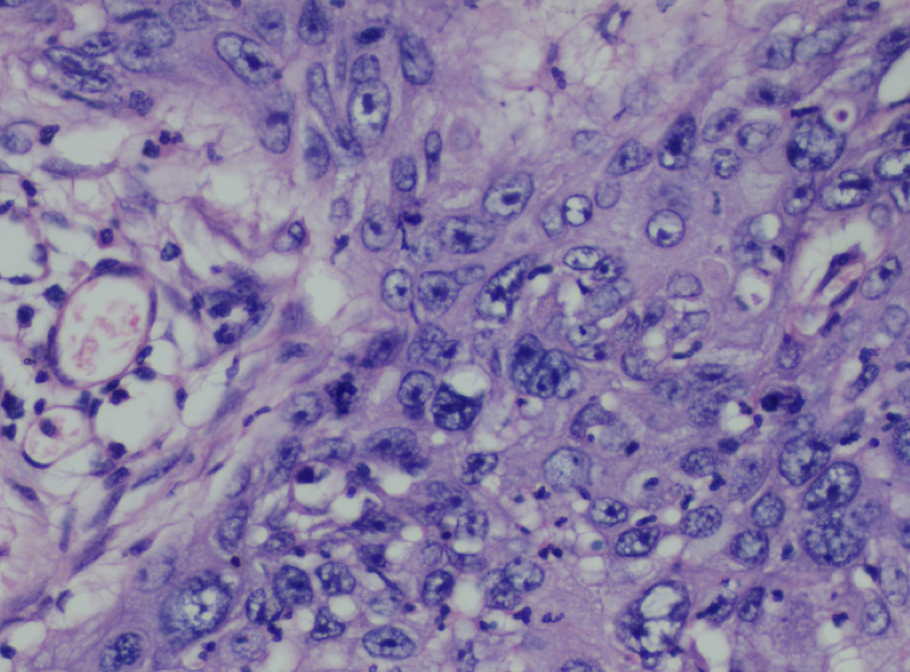
The NHS is accelerating its efforts to provide cutting-edge cancer treatments, with a new vaccine trial opening for patients with advanced skin cancer.
This initiative is part of the NHS Cancer Vaccine Launch Pad (CVLP), a program designed to fast-track access to mRNA vaccine clinical trials for various cancer types.
Building on its success in providing thousands of patients with personalized bowel cancer vaccines, the CVLP is expanding its scope to include melanoma, the most serious form of skin cancer. This expansion marks a significant step forward in the fight against cancer, offering new hope to patients with advanced stages of the disease.
The CVLP’s ambitious goal is to provide personalized cancer treatments to up to 10,000 patients in England by 2030. This program underscores the NHS's commitment to pioneering innovative cancer therapies and improving patient outcomes.

The new melanoma vaccine, known as iSCIB1+ (Immunobody), helps the immune system recognise cancer cells and therefore better respond to existing immunotherapy treatment.
By working to help the body recognise, attack and “remember” cancer cells, it can help stop the disease returning.
Around half of melanoma patients respond to immunotherapy, but those who do not are at higher risk of their cancer getting worse.
The vaccine is being trialled by needle-free injection into the skin or muscle, and the CVLP, working with UK life-sciences company Scancell, hopes to expand the number of patients taking part by October.
Melanoma is the fifth most common cancer in the UK, accounting for around 4% of all new cancer cases.
Skin cancer symtoms
According to The NHS
A new mole or a change in an existing mole may be signs of melanoma.
Melanomas can appear anywhere on your body, but they're more common in areas that are often exposed to the sun.
Some rarer types can affect the eyes, soles of the feet, palms of the hands or genitals.
Check your skin for any unusual changes. Use a mirror or ask a partner or friend to check any areas you cannot see.
NHS national cancer director, Professor Peter Johnson, said: “Skin cancer can have a devastating impact and we know that cancer vaccines have the potential to revolutionise cancer care for patients in this country and across the world – and to save more lives.
“It’s incredibly exciting that the NHS is expanding its world-leading programme so more patients with different types of cancer could benefit from the development of new vaccines that could stop their cancer coming back.”
Grandfather-of-four Paul Thomas, 63, from New Milton, Hampshire, was first diagnosed with advanced skin cancer in 2017, and the disease kept returning following treatment.
Last year, Mr Thomas, who owns a window cleaning business, was given the opportunity to be part of the SCOPE skin cancer vaccine trial which is now part of the NHS CVLP.
He said: “I feel so lucky to be put on the trial. Thankfully I was still quite fit and since I’ve been on it, my tumours have all shrunk.
“Every time I go for a scan they seem to be shrinking, which is really exciting.
“I’m really hoping for total eradication of my cancer, as opposed to being put in remission, and I’m feeling optimistic.
“The care I’ve had so far has been fantastic and the team that have looked after me have been superb, along with amazing support from my family, I’m so thankful.”
Dr Nermeen Varawalla, chief medical officer, Scancell, said: “Cancer vaccines have the potential to transform immunotherapy, redefine treatment options and ultimately save lives.
“Recent clinical data has demonstrated that our potent, tumour-targeted ‘off-the-shelf’ cancer vaccine delivers strong efficacy, with the potential for meaningful long-term survival benefits in patients with advanced metastatic melanoma.
“Our partnership with the CVLP will give patients expedited access to this landmark study and is an important step in accelerating the clinical development of this important new treatment.”
Susanna Daniels, chief executive of Melanoma Focus, said: “Melanoma skin cancer can be deadly and it’s sadly on the rise in the UK.
“As well as continuing to call for urgent action on prevention, we’re delighted to see progress in innovative treatments and very much welcome the expansion of this vaccine trial.
“The use of vaccines to treat melanoma is an exciting development and we will be encouraging eligible patients to take part in these ground-breaking trials with our up-to-date Melanoma TrialFinder so that vaccines can be understood and patients can locate trial centres to discuss with their medical teams.”
Prime Minister Sir Keir Starmer said: “This kind of innovation is nothing short of life-saving and I want to see more of these world-leading treatments being developed in the UK.”
Measles cases in Texas continue to grow. Trump’s funding cuts could make it worse
AI health warning as researchers say algorithms could discriminate against patients
‘National scandal’ after 2,800 children sent to A&E over severe tooth decay last year
‘NHS mental health services failed my daughter – I don’t want others to suffer’
How to tell if it’s a cold or hay fever. The key differences explained
Number of overweight teens in England has soared by 50% since 2008







